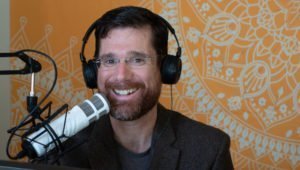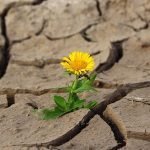
The key to ecstasy
How do you know when you are at the end of something? Have you ever been to a “going away” party? Do you know how there’s that sadness initially because something is ending? A person is leaving the company, or moving away somewhere else? It feels to me kind of like a closing up. A book where the last page has just been read. Sometimes at those moments, though, my mind wanders and I think for a minute that it’s also kind of exciting. Because the person is about to begin something new. What if the new thing is about to be the best experience of that person’s life? What if they’re about to meet the person they’re going to spend their life with? This episode, we’re exploring the divine name, Ya-Fattah. In the book, Physicians of the Heart, the authors say that Fattah means to open something with something else. Like a key. They say that even in the midst of despair, with this key, we can awaken to love and ecstasy. What’s that about? Love and ecstasy? I gotta admit that those aren’t words I use very often… and in the midst of despair? Come on. But what if that really is what it’s all about? Being able to expand ourselves – to stretch our own beings enough to be able to hold those two extremes at the same time. Love – even the ecstasy kind of love, right their with despair. At.The.Same.Time. As Barack Obama used to say: Come on now. As part of my seminary training, I served as a chaplain in a local hospital. Some days were quiet and sweet, but other days I saw things that I will never be able to un-see. People in their most despairing states. As the chaplain you’re right there with the first responders when someone comes into the trauma center. In fact, sometimes the chaplain is the last responder. When there’s nothing else to be done, and life or death are not in human hands anymore. I remember taking all that emotion and grief and despair on myself. Even though it wasn’t my own emotion, it didn’t matter. Emergency workers talk about the sponge effect. Just by being in a traumatic environment, you soak it up like a sponge soaks up water. On the evening of one particular horrific day of greeting a stream of life-flight helicopters arriving non-stop and accompanying families who were living through the worst days they’ll ever have, I was exhausted and heading home. I got in the elevator with a young man and woman. The woman was in a wheelchair with a new baby. As I smiled at the glowing pair, they lit up and I learned that this newborn, who had been very sick, was finally getting to go home to a bright future. I managed to hold back the tears until I got outside into the fading light of dusk, and then it all came flowing. The sponge was being wrung out. All the grief and fear and upset was in there, and the joy and hope and beauty of new life was in there too. Is that Al Fattah? Or is Al-Fattah the key to my being able to hold — not either/or, but both/and? Not to have to choose between joy or grief, but to grow and stretch ourselves to be vast enough and strong enough to hold both. Despair and beauty. Sorrow and gratitude. Pain and laughter. You know it’s a 30 minute walk home from the hospital and I cried the whole way that night. And I also laughed and smiled. When I got home, she asked, “so how was your day?” “Fine.” “Mmmhmmm. Big day, huh?” I think she [my beloved] knew. I think you do too. Carl Sagan used to say that you are made of star stuff. Our bodies contain every element that has been here since the beginning of time. We are also made of stories and emotions and something deeper and more vast than any word could ever describe. I hope you’ll remember this vastness when you need it. Next time you’re feeling lost or without hope, look around you for the joy. Next time life is easy and sweet and good, also look around you because there maybe someone who needs a hand. That’s how we can get along — by reminding each other. Until next time, Series Navigation<< WTF?He Made Me Do it! >>











